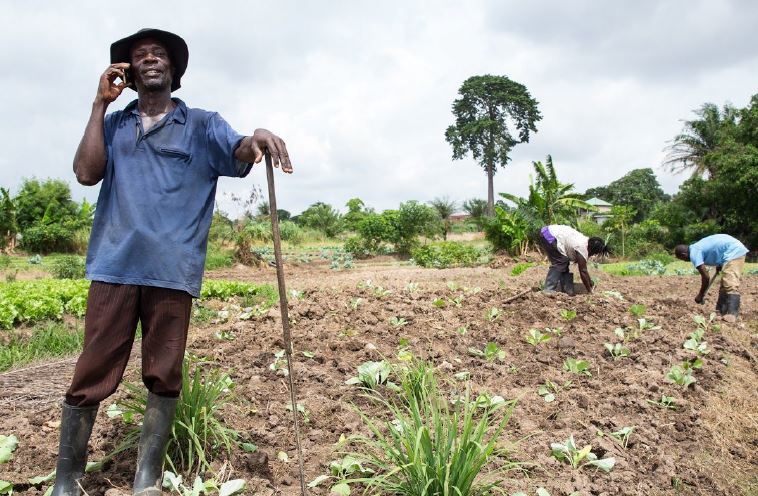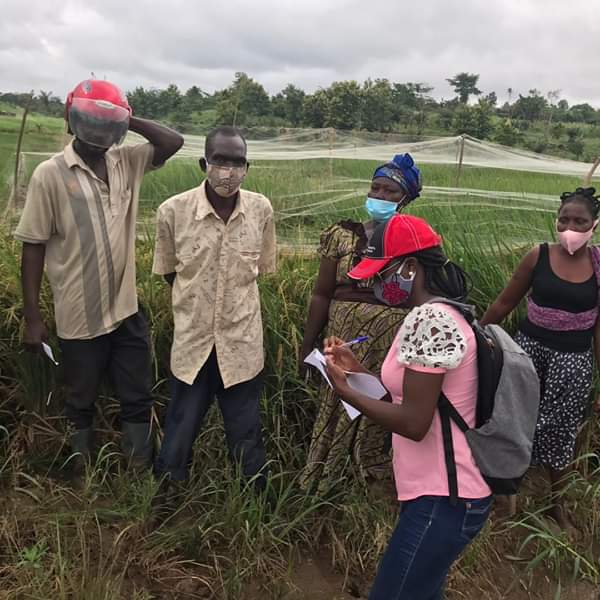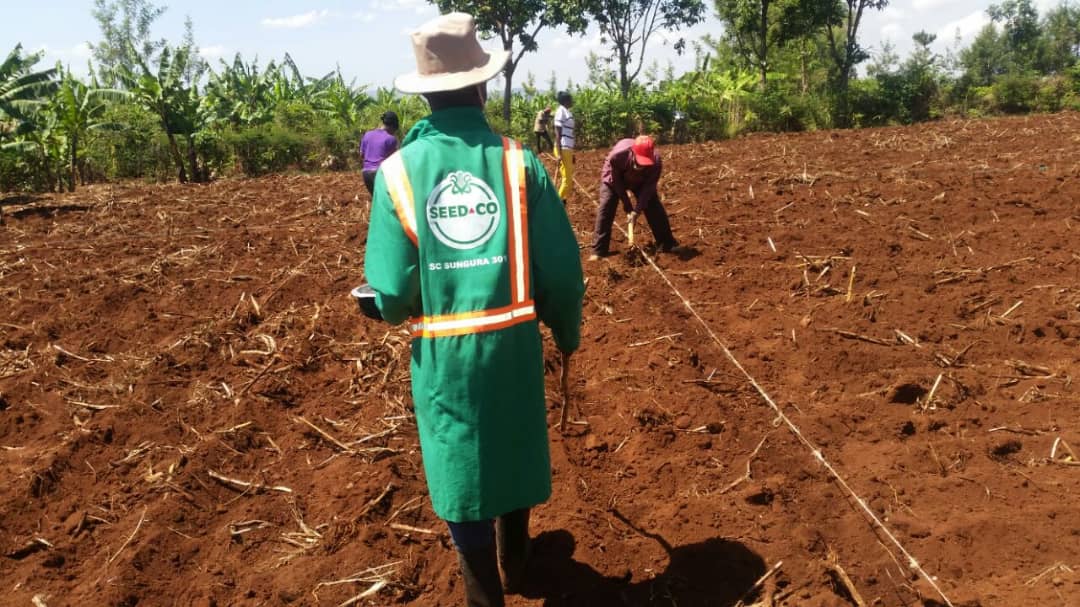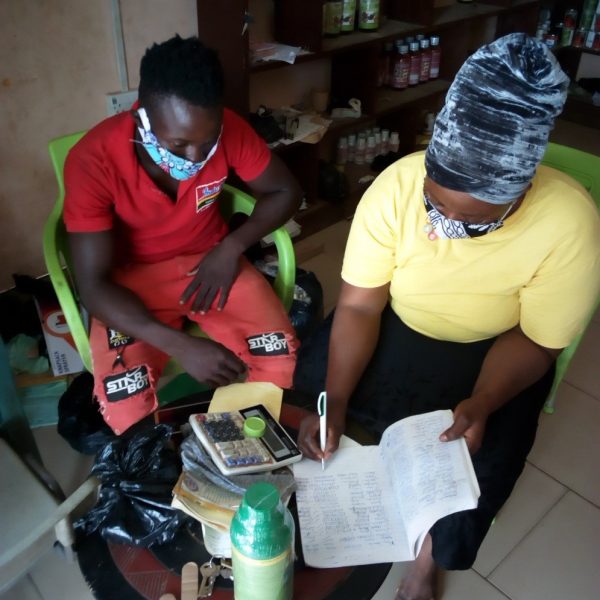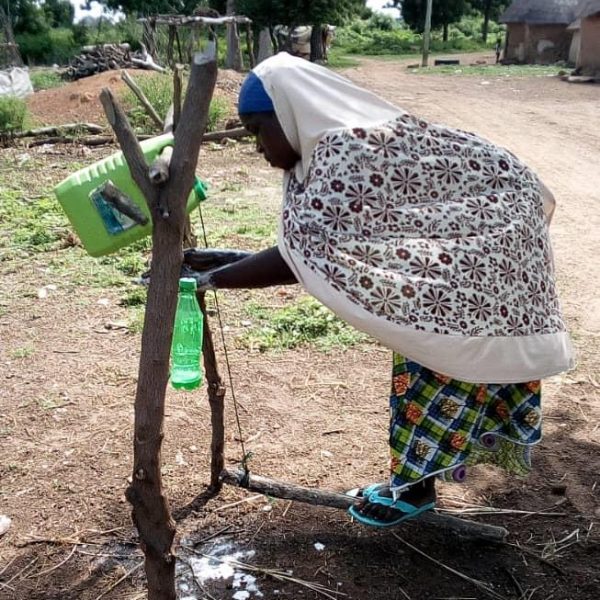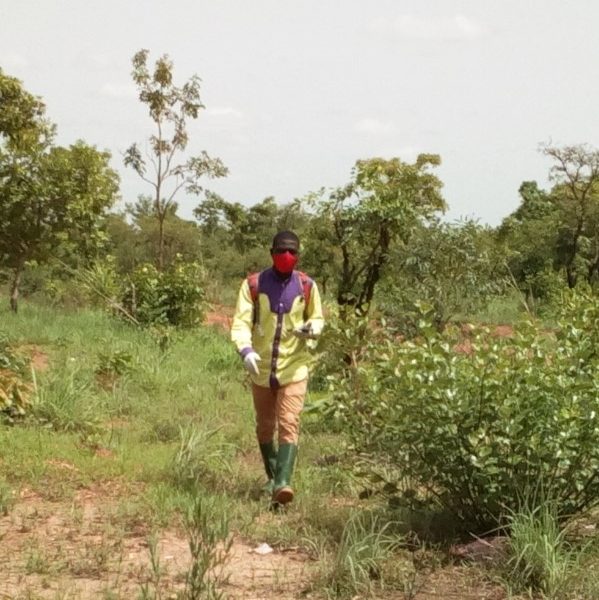Participants in MADE’s graduate internship programme spent four weeks with partner agribusinesses, travelling to smallholder farmer communities with information on COVID-19 preparedness as well as good agricultural practices. This guest series presents their experiences in the field in their own words and photos.
With the outbreak of the COVID-19 pandemic, most sectors in Ghana have been affected, with consequences for the economy of the country as a whole. Agriculture is no exception from the havoc COVID-19 is causing the country and the world. I am very happy to be part of this year’s graduate internship, especially with COVID-19 as such a concern. From the internship I gained first-hand information from farmers in Builsa North District about the problems affecting their farm businesses.
The farmers I met with have been hearing about COVID-19 and safety protocols from local radio stations, television and the National Commission for Civic Education. They could mention protocols such as wearing nose masks, social distancing, handwashing with soap under running water, and sneezing into their elbows.
However, they faced different problems that hindered the smooth running of their farming business. During the internship I observed that farmers had problems with the availability of farm inputs, especially fertilisers, coupled with the unavailability of tractor services. They were concerned that contracts made with dealers for inputs may prove futile and they could be left counting their losses. This made the majority of them fear going into commercial farming this season. I also observed that the ratio of extension officers to farmers was nothing to write home about, and this was a setback for agricultural extension to the farmers.
Last but not least, I observed that most of the farmers I reached were farming as single households and did not belong to farmer based organisations or common farmer groups, which makes distribution of fertiliser and other farm inputs to their doorsteps very difficult. This is a big concern for Johil Farmer Solutions, the input dealing agribusiness I supported as an intern. The company is putting more effort into encouraging farmers to form groups so the business can help solve their problems without any stress.
In our meetings with farmers I recommended that they try to form groups through which they can share experiences and ideas to learn from each other, as well as easily obtain farm inputs in bulk. We also agreed to put COVID-19 protocols in our minds as we go about farm business. Most residents of Builsa North District are engaged in various forms of agriculture, and I wish the period of my internship could be longer so I could reach an even greater number of farmers and help them benefit from MADE partnerships, as so many have done.

